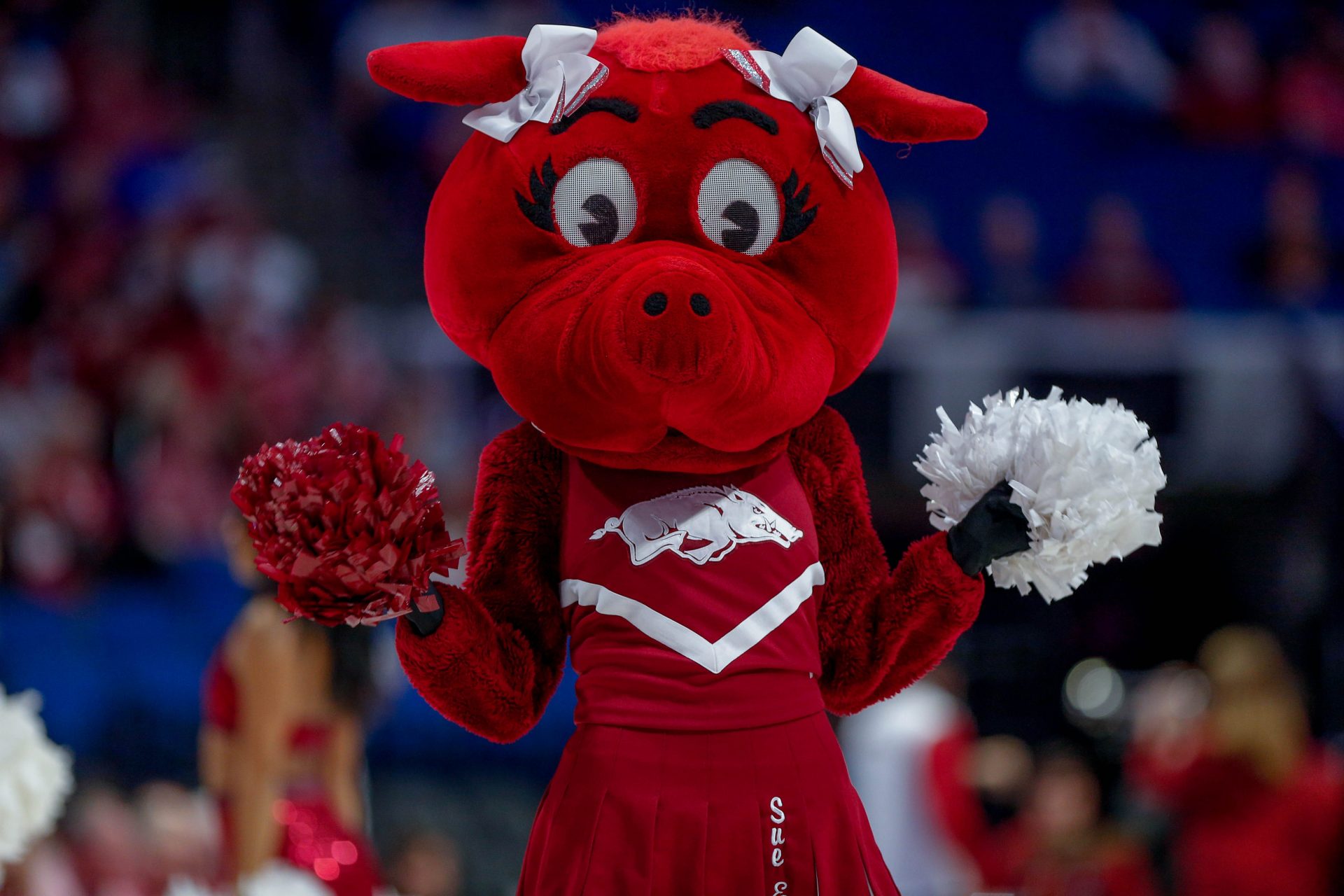The Arkansas Razorbacks mascot is iconic. The cardinal, black, and white Razorback is among college sports’ most recognizable emblems.
The Razorbacks are also home to one of the most amazing live mascots in college sports. The tradition of a live Razorback mascot dates back to the 1960s. The newest lineage of Razorbacks, named “Tusk,” all from the same lineage, began roaming the Arkansas sidelines in 1997.
Arkansas has also created a family of costumed mascots, which Arkansas fans and families have grown to love.

Who (or What) Is the Arkansas Razorbacks Mascot?
The Arkansas Razorbacks have one of college football’s most intriguing live mascots.
Arkansas’ live mascot, Tusk, is currently represented by Tusk VI. Each Tusk is a male Russian boar and hails from the same bloodline.
Tusk accompanies the Razorbacks to every home football game in Fayetteville, Ark., or Little Rock, Ark., selected away games such as the annual Southwest Classic against Texas A&M in Dallas, and occasionally bowl games depending on the distance needed to travel. The mascots have been raised on a rural farm near Dardanelle, Ark., under the care of the Stokes family.
The tradition began with Tusk I when Keith Stokes, then president of the Arkansas Pork Producers Association, was asked by Razorback personality David Bazzel in 1994 to find a wild hog to serve as the university’s live mascot. Tusk I’s legacy continued with his offspring as Tusks II and III descended from him.
In addition to Tusk, the University of Arkansas has a family of uniformed mascots that bring spirit to every athletic event.
Leading the charge is Big Red, the “Fighting Razorback,” who symbolizes the Razorbacks’ fierce determination. Sue E, the female hog, stands out with her costume changes and impressive dance moves, making her a crowd favorite. “Sue E” comes from the Arkansas chant “Wooo Pig Sooie,” a chant Arkansas fans use at all sporting events derived from hog hunters in England.
She and Pork Chop, the smaller, kid-friendly mascot, are especially adored by younger fans and are regulars at all games.
Adding to the excitement is Boss Hog, a towering nine-foot inflatable mascot who joined the Razorback family during the 1998-99 football season, further boosting the team’s spirited atmosphere.
Why Is Arkansas the Razorbacks?
Arkansas’ football program began in 1894, a season with three games and two opponents: the University of Texas and Fort Smith High School. Arkansas was initially known as the Cardinals for its chosen colors of red and white — a tradition still reflected in its use of cardinal red today.
In 1909, the team and university identity significantly turned when football coach Hugo Bezdek declared that his players resembled a “wild band of razorback hogs” in their fierce play.
That season, Arkansas finished undefeated with a 7-0 record, and the Razorback name quickly caught on. By 1910, the students had officially voted to adopt the Razorbacks as the team’s name, proudly chanting, “Here come the hogs!” as the team charged onto the field.
The first drawn logo for the Razorbacks was black and white and was made in 1920. The cardinal color was later added to the logo in a variation the Arkansas track team used, which featured a running hog displaying its speed.
College Football Network has you covered with the latest news and analysis, rankings, transfer portal information, top 10 returning players, the 2024 college football season schedule, and much more!

